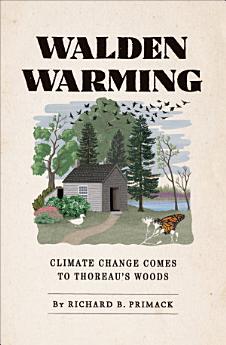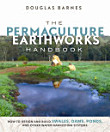Walden Warming: Climate Change Comes to Thoreau's Woods
Mar 2020 · University of Chicago Press
Ebook
266
Pages
family_home
Eligible
info
reportRatings and reviews aren’t verified Learn More
About this ebook
"An unnervingly close-to-home perspective [on] the dynamics and impact of climate change on plants, birds, and myriad other species, including us."— Booklist
In his meticulous notes on the natural history of Concord, Massachusetts, Henry David Thoreau records the first open flowers of highbush blueberry on May 11, 1853. If he were to look for the first blueberry flowers in Concord today, mid-May would be too late. Warming temperatures have pushed blueberry flowering three weeks earlier, and in 2012, following a period of record-breaking warmth, blueberries began flowering on April 1—six weeks earlier than in Thoreau's time.
In Walden Warming, Richard B. Primack uses Thoreau and Walden, icons of the conservation movement, to track the effects of a warming climate on Concord's plants and animals, with the notes that Thoreau made years ago transformed from charming observations into scientific data sets. Primack finds that many wildflower species that Thoreau observed, including familiar groups such as irises, asters, and lilies, have declined in abundance or disappeared from Concord. Primack also describes how warming temperatures have altered other aspects of Thoreau's Concord, from the dates when ice departs from Walden Pond in late winter, to the arrival of birds in the spring, to the populations of fish, salamanders, and butterflies that live in the woodlands, river meadows, and ponds.
Demonstrating the effects of climate change in a unique, concrete way using this historical and literary landmark as a touchstone, Richard Primack urges us to heed the advice Thoreau offers in Walden: to live simply and wisely. In the process, we can minimize our own contributions to our warming climate.
In his meticulous notes on the natural history of Concord, Massachusetts, Henry David Thoreau records the first open flowers of highbush blueberry on May 11, 1853. If he were to look for the first blueberry flowers in Concord today, mid-May would be too late. Warming temperatures have pushed blueberry flowering three weeks earlier, and in 2012, following a period of record-breaking warmth, blueberries began flowering on April 1—six weeks earlier than in Thoreau's time.
In Walden Warming, Richard B. Primack uses Thoreau and Walden, icons of the conservation movement, to track the effects of a warming climate on Concord's plants and animals, with the notes that Thoreau made years ago transformed from charming observations into scientific data sets. Primack finds that many wildflower species that Thoreau observed, including familiar groups such as irises, asters, and lilies, have declined in abundance or disappeared from Concord. Primack also describes how warming temperatures have altered other aspects of Thoreau's Concord, from the dates when ice departs from Walden Pond in late winter, to the arrival of birds in the spring, to the populations of fish, salamanders, and butterflies that live in the woodlands, river meadows, and ponds.
Demonstrating the effects of climate change in a unique, concrete way using this historical and literary landmark as a touchstone, Richard Primack urges us to heed the advice Thoreau offers in Walden: to live simply and wisely. In the process, we can minimize our own contributions to our warming climate.
About the author
Richard B. Primack is professor of biology at Boston University. He is the author of Essentials of Conservation Biology and A Primer of Conservation Biology and editor-in-chief of the international journal Biological Conservation.
Rate this ebook
Tell us what you think.
Reading information
Smartphones and tablets
Install the Google Play Books app for Android and iPad/iPhone. It syncs automatically with your account and allows you to read online or offline wherever you are.
Laptops and computers
You can listen to audiobooks purchased on Google Play using your computer's web browser.
eReaders and other devices
To read on e-ink devices like Kobo eReaders, you'll need to download a file and transfer it to your device. Follow the detailed Help Center instructions to transfer the files to supported eReaders.





